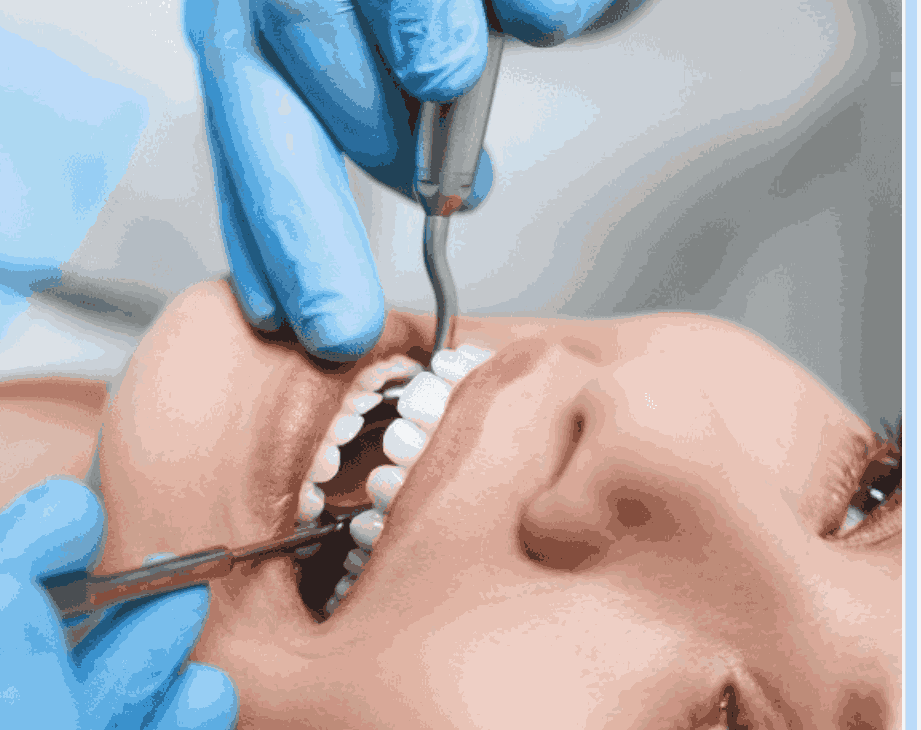Maintaining good oral health is essential for overall well-being, and regular dental check-ups play a significant role in keeping your teeth and gums in top condition. But how often should you visit the dentist? The answer depends on various factors, including your oral health status, risk factors, and personal habits. If you are looking for expert dental care, this dentist in Trenton can help you determine the best schedule for your individual needs.
The General Recommendation for Dental Visits
For most people, dentists recommend visiting the clinic at least twice a year for a routine check-up and professional cleaning. These biannual visits allow your dentist to assess your oral health, detect any potential issues early, and provide preventive care to avoid more serious problems.
During these appointments, your dentist will examine your teeth and gums, check for cavities, assess the condition of existing dental work, and screen for signs of gum disease or oral cancer. A professional cleaning will remove plaque and tartar buildup, which helps prevent tooth decay and gum infections.
Factors That Influence Visit Frequency
While the general guideline of two visits per year applies to many, some individuals may need to see their dentist more or less frequently, depending on their oral health status and lifestyle choices. Here are some factors that can impact how often you should visit the dentist:
1. History of Cavities or Gum Disease
If you have a history of cavities, gum disease, or other dental problems, your dentist may recommend more frequent visits. Individuals with a higher risk of oral health issues may need check-ups every three to four months to ensure problems are caught and treated early.
2. Lifestyle Habits
Your daily habits play a significant role in your oral health. If you smoke, consume sugary foods and beverages frequently, or have poor oral hygiene, you may be at an increased risk of dental problems. Regular visits to the dentist can help manage these risks and keep your teeth healthy.
3. Age and Medical Conditions
Certain medical conditions, such as diabetes or autoimmune diseases, can increase the risk of gum disease and other oral health issues. Children, seniors, and individuals with chronic health conditions may need to see the dentist more often for preventive care and monitoring.
4. Pregnancy and Hormonal Changes
Pregnancy and hormonal changes can affect gum health, making pregnant individuals more susceptible to conditions like pregnancy gingivitis. Dentists may recommend more frequent visits during pregnancy to monitor and manage gum health.
The Importance of Preventive Dental Care
Regular dental visits are about more than just fixing problems—they are an essential part of preventive care. Routine check-ups allow dentists to identify and address minor issues before they become major concerns. Early detection of problems like cavities, gum disease, and oral infections can save you from expensive and painful treatments in the future.
Preventive care also includes professional cleanings that remove tartar and plaque buildup, which are difficult to eliminate with regular brushing and flossing alone. Additionally, dentists can provide valuable advice on improving your oral hygiene routine and recommend treatments such as fluoride applications or sealants to protect your teeth.
What Happens If You Skip Dental Check-Ups?
Delaying or skipping dental visits can lead to serious consequences for your oral health. Without regular check-ups, plaque and tartar can accumulate, increasing the risk of cavities, gum disease, and bad breath. Small dental issues that could have been easily treated may develop into major problems, requiring more invasive and costly procedures like root canals or tooth extractions.
Gum disease, if left untreated, can progress to periodontitis, a severe condition that can lead to tooth loss and negatively impact overall health. Studies have also linked poor oral health to systemic health conditions, including heart disease and diabetes, highlighting the importance of maintaining regular dental check-ups.
Tips for Maintaining Good Oral Health Between Visits
Even with regular dental visits, taking care of your teeth and gums at home is essential for long-term oral health. Here are some tips to maintain a healthy smile between check-ups:
- Brush Twice a Day: Use fluoride toothpaste and a soft-bristled toothbrush to clean your teeth for at least two minutes each time.
- Floss Daily: Flossing removes plaque and food particles from between your teeth and along the gum line.
- Eat a Balanced Diet: Reduce sugary foods and drinks, and incorporate more fruits, vegetables, and dairy products that promote strong teeth.
- Stay Hydrated: Drinking plenty of water helps rinse away bacteria and maintain saliva production, which protects against cavities.
- Use Mouthwash: An antibacterial mouthwash can help reduce plaque buildup and keep your breath fresh.
Conclusion: Find the Right Dental Visit Schedule for You
How often you should visit the dentist depends on your individual oral health needs, lifestyle habits, and risk factors. While the standard recommendation is twice a year, some people may require more frequent visits to maintain optimal oral health.
If you are unsure about your ideal dental visit schedule, consulting with this dentist in Trenton can help you create a personalized plan to keep your teeth and gums healthy. Regular check-ups, combined with good oral hygiene habits, will ensure your smile remains bright and problem-free for years to come.







